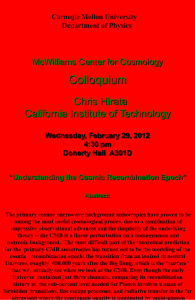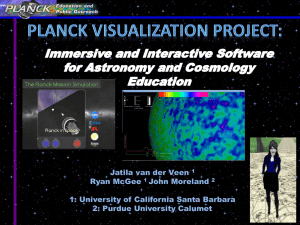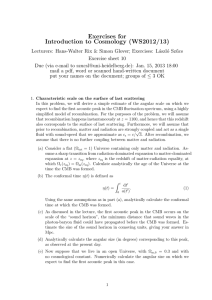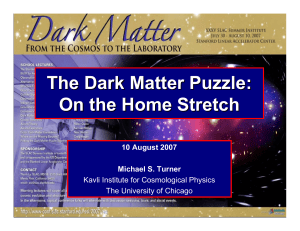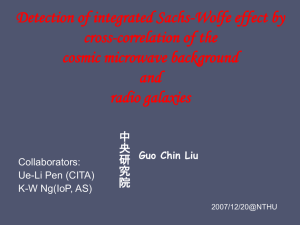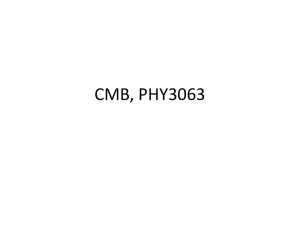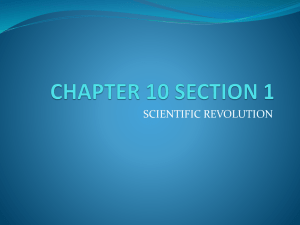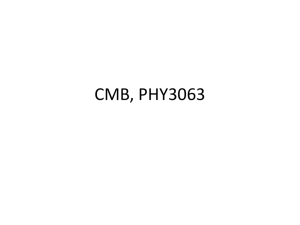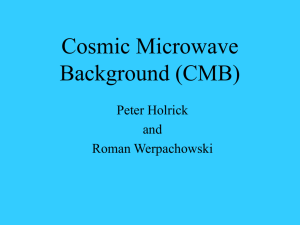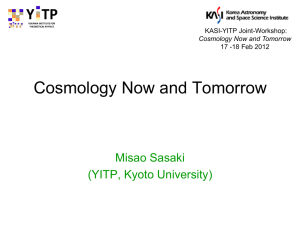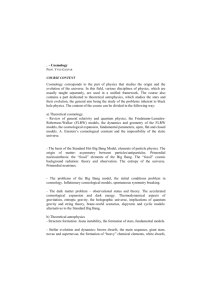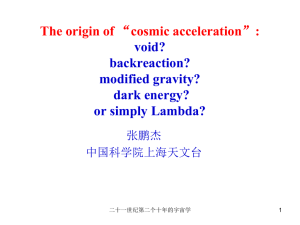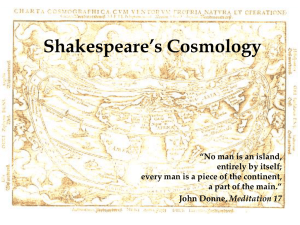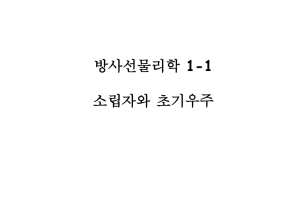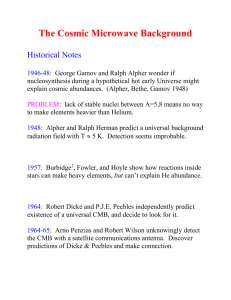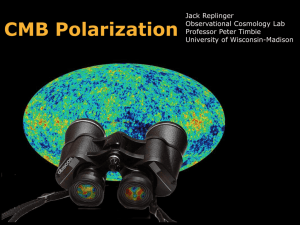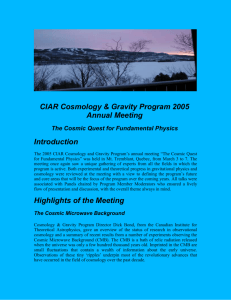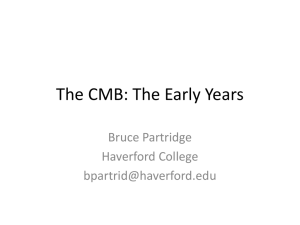Syllabus for PHYS 501-001 Advanced Seminar: Obs
advertisement
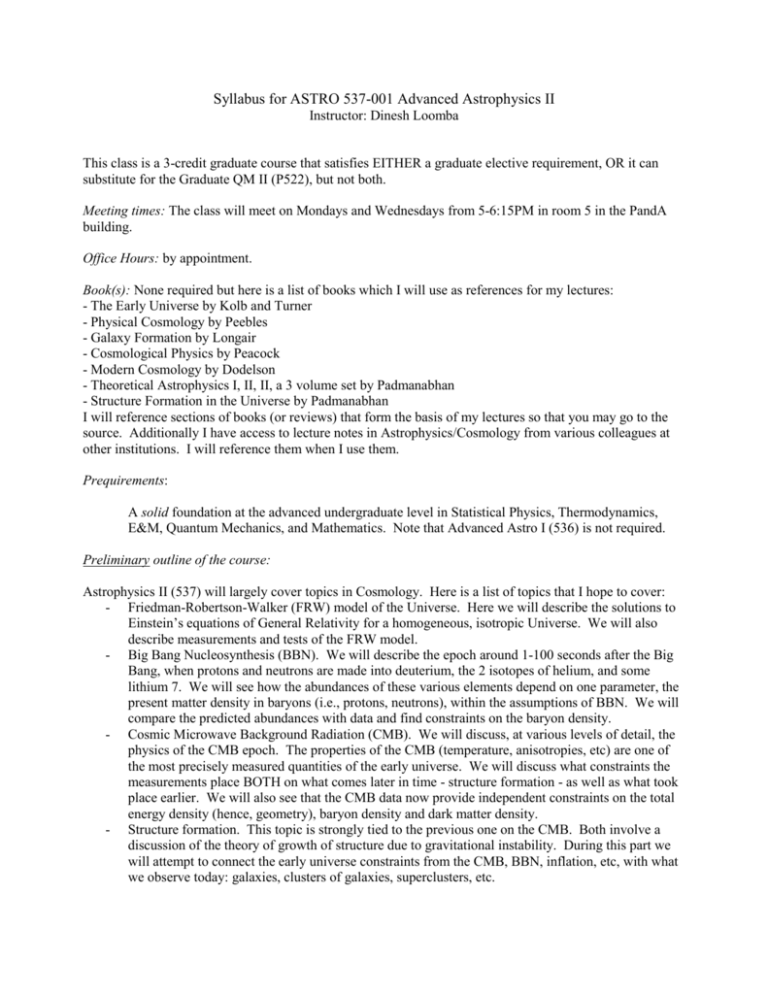
Syllabus for ASTRO 537-001 Advanced Astrophysics II Instructor: Dinesh Loomba This class is a 3-credit graduate course that satisfies EITHER a graduate elective requirement, OR it can substitute for the Graduate QM II (P522), but not both. Meeting times: The class will meet on Mondays and Wednesdays from 5-6:15PM in room 5 in the PandA building. Office Hours: by appointment. Book(s): None required but here is a list of books which I will use as references for my lectures: - The Early Universe by Kolb and Turner - Physical Cosmology by Peebles - Galaxy Formation by Longair - Cosmological Physics by Peacock - Modern Cosmology by Dodelson - Theoretical Astrophysics I, II, II, a 3 volume set by Padmanabhan - Structure Formation in the Universe by Padmanabhan I will reference sections of books (or reviews) that form the basis of my lectures so that you may go to the source. Additionally I have access to lecture notes in Astrophysics/Cosmology from various colleagues at other institutions. I will reference them when I use them. Prequirements: A solid foundation at the advanced undergraduate level in Statistical Physics, Thermodynamics, E&M, Quantum Mechanics, and Mathematics. Note that Advanced Astro I (536) is not required. Preliminary outline of the course: Astrophysics II (537) will largely cover topics in Cosmology. Here is a list of topics that I hope to cover: - Friedman-Robertson-Walker (FRW) model of the Universe. Here we will describe the solutions to Einstein’s equations of General Relativity for a homogeneous, isotropic Universe. We will also describe measurements and tests of the FRW model. - Big Bang Nucleosynthesis (BBN). We will describe the epoch around 1-100 seconds after the Big Bang, when protons and neutrons are made into deuterium, the 2 isotopes of helium, and some lithium 7. We will see how the abundances of these various elements depend on one parameter, the present matter density in baryons (i.e., protons, neutrons), within the assumptions of BBN. We will compare the predicted abundances with data and find constraints on the baryon density. - Cosmic Microwave Background Radiation (CMB). We will discuss, at various levels of detail, the physics of the CMB epoch. The properties of the CMB (temperature, anisotropies, etc) are one of the most precisely measured quantities of the early universe. We will discuss what constraints the measurements place BOTH on what comes later in time - structure formation - as well as what took place earlier. We will also see that the CMB data now provide independent constraints on the total energy density (hence, geometry), baryon density and dark matter density. - Structure formation. This topic is strongly tied to the previous one on the CMB. Both involve a discussion of the theory of growth of structure due to gravitational instability. During this part we will attempt to connect the early universe constraints from the CMB, BBN, inflation, etc, with what we observe today: galaxies, clusters of galaxies, superclusters, etc. - Special Topics. These will include: dark matter, AGNs (quasars), gravitational lensing, SunyaevZeldovich effect, Epoch of Reionization, and possibly topics of the very early universe such as baryogenesis, phase-transitions, inflation, etc. This part provides the students a chance to have input on what they'd like to hear (tell me soon!). This is an approximate list of topics and we may not cover all the material this semester. My goal is to cover material in depth instead of just a lot of topics. Course grading: a) Homeworks 60%. Approximately 7-8 homework sets over the semester. Homeworks will be accepted up to a week after the due date but at a loss of credit up to 50%. b) Final Project 40%. A final project involving a term paper will be due on December 8th. This semester I will require that students meet with me to discuss the topic of their term paper and to turn in a brief outline no later than November 10th. Besides these official contributions to your grade the following will help you: c) During class I may suggest a problem for extra credit. d) Questions may be raised during class that I won't be able to answer. Students who, in future classes, return with additional information that sheds light on the subject will be duly noted! e) Students are strongly encouraged to ask questions, express skepticism, start discussions, and in general actively participate in the course. If there is a single motto to follow in this course, it is that there are no "dumb" questions! If you don't ask, you won't learn so please don't be shy.
